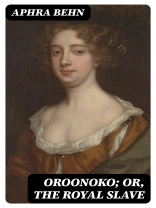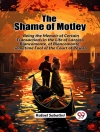Aphra Behn’s 'Oroonoko; or, The Royal Slave’ is a groundbreaking work in the canon of early English literature, weaving a poignant tale of love, betrayal, and the harrowing realities of slavery. Written in 1688, Behn’s novel employs a rich and lyrical prose style that reflects the complexities of its themes, employing vivid descriptions and heartfelt emotion to immerse readers in the life of Oroonoko, an African prince who is forcibly enslaved. The book stands as a novel of its time, both a reflection and critique of contemporary attitudes towards race and colonialism, bridging the gap between fiction and political commentary during the early Enlightenment period. Aphra Behn, one of the first professional female writers in England, drew from her own diverse experiences—including her travels in the Caribbean—as she penned this powerful narrative. Behn’s life was characterized by her independence and boldness, qualities that echo in her writing. Her pioneering role in literature not only challenged gender norms but also provided a platform for issues of race and justice, making her a key figure in the development of the novel as a genre. This essential work is a must-read for anyone interested in the intersection of literature, history, and social justice. Behn’s deft handling of complex characters and moral dilemmas invites readers to reflect on themes of freedom and the human condition, making 'Oroonoko’ not only a significant literary achievement but also a timeless exploration of humanity’s darker aspects.
O autorze
Aphra Behn (1640-1689), a pioneering figure in English literature, is widely celebrated as one of the first women to earn her living as a writer during the Restoration era. Behn’s body of work encompasses poetry, fiction, and drama, with her prose style marked by a vivid expressiveness and an engagement with the themes of political intrigue, gender roles, and colonialism. Her seminal work, 'Oroonoko; or, The Royal Slave’, published in 1688, is a groundbreaking piece of literature that blends narrative with social commentary. It tells the tragic story of an African prince and his beloved Imoinda, dealing with issues of slavery, race, love, and betrayal. Behn’s Oroonoko is considered a precursor to the novel form and a compelling critique of the transatlantic slave trade, which was pervasive during her time. Her literary accomplishments, subversive for the period, have been extensively analyzed by scholars in the realms of feminist and postcolonial studies (Todd, Janet, 'The Secret Life of Aphra Behn’, 1996; Gallagher, Catherine, 'Nobody’s Story: The Vanishing Acts of Women Writers in the Marketplace, 1670-1820′, 1994). Behn’s writing not only reflects the complexity of her own experiences as a woman in a male-dominated society but also her nuanced understanding of power dynamics within diverse sociopolitical contexts. Her work continues to be essential reading for those interested in the early development of the English novel and the evolution of women’s literature.












